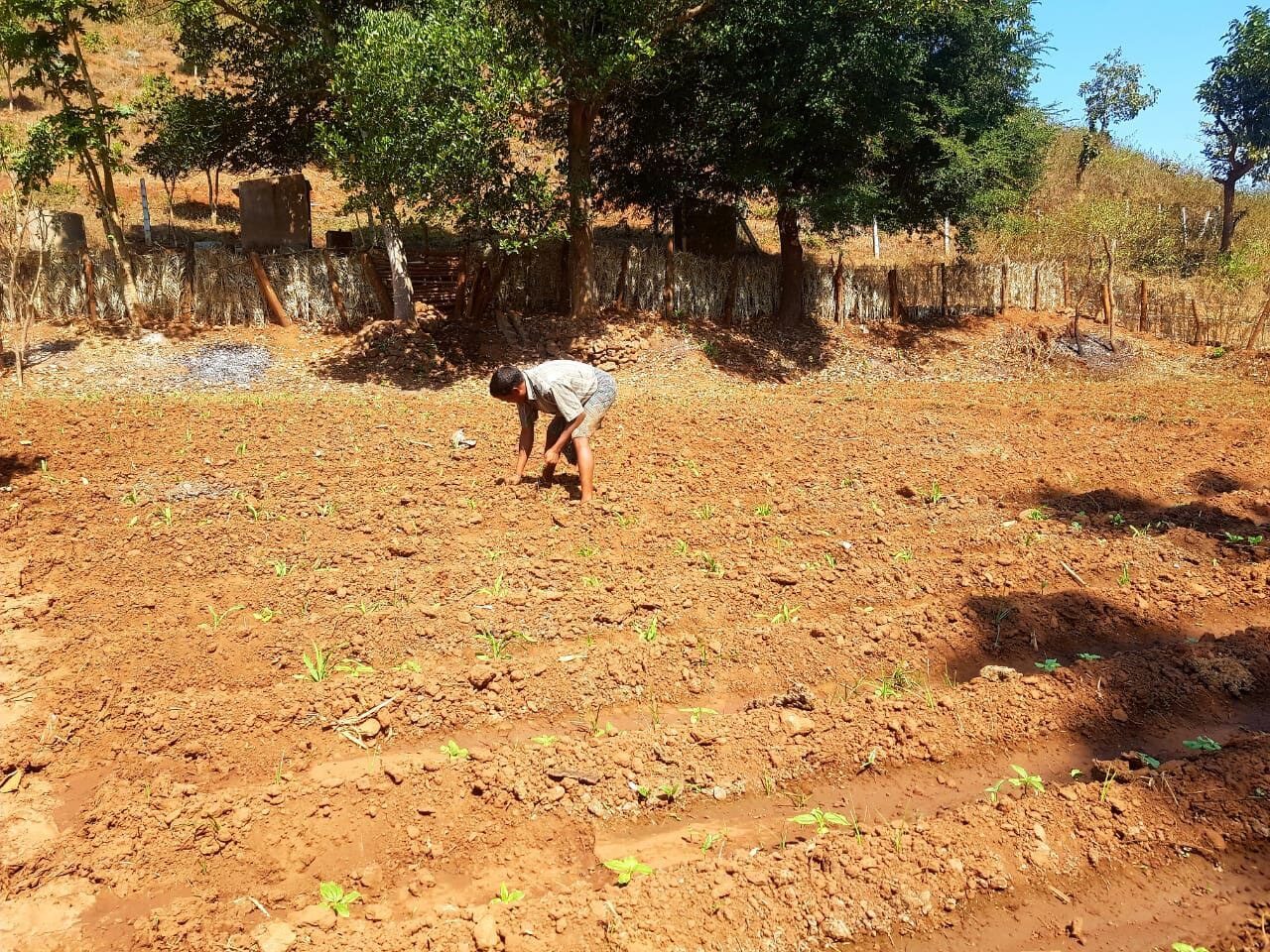A micro-hydro project has communities hopeful
StoryBy Chandrika Patnaik
11 March 2023
A community-led rural electrification project promises adequate and seamless energy access for livelihoods to 272 Adivasi households in Kalahandi and Gajapati districts.

Jugu Majhi working in his field.
Photograph by Binoda Bihary Sethi
One has to travel four kilometres from Gunupur town through the forest and then wade through the water to cross the Nagavali river to reach Karnibel village, an Adivasi village which is home to 22 families. Most of the families are primarily into farming.
During the rainy season, the village remains cut off from the nearest town of Gunupur as the river swells and remains in darkness for an entire month. The main grid fails in the incessant rains, and sometimes the transmission lines suffer damage and lay unattended for weeks at a stretch.
When the micro-hydro project came up in this village for the first time in 2010, a rice mill was kept at the powerhouse for the convenience of the community to mill their harvested paddy and pulses instead of travelling to Gunupur town. They used to mill their agricultural produce in the village using this rice mill free of cost and did not need to spend money on hiring a tractor to transport it to a mill in Gunupur.
Jugu Majhi, 37, a farmer, lives in Karnibel village with his wife and two children. He laments about the rice mill lying unused in the powerhouse as the micro-hydro project has been defunct for the past six years.
After every harvest of rice and pulses, Jugu Majhi and the other village residents are now having to hire a tractor for 500 each trip to transport the produce to the rice mill in Gunupur. They travel two kilometres to Khakesh village a day or two in advance to book the tractor. He says, “Even if there is a power supply from the main grid in the village, the rice mill will not work due to low voltage.”
But Jugu Majhi is hopeful that Karnibel will soon get a micro-hydro power plant in Karnibel. Harnessing the power of water from the Trunja Jharan stream, the plant, once commissioned, will generate enough energy to keep a small village of 22 households illuminated 24X7. Moreover, the solar photovoltaic system as part of the power plant creates a hybrid power generation system of micro-hydro and solar energy, enabling sufficient electricity supply in the summer season when the stream flow is lean.
Farmers like Jugu Majhi would not have to travel anywhere but could mill their paddy and pulses free of cost and at their own convenient time in the mill in their village if the micro-hydro power plant became a reality.
The power plant will produce enough clean energy to power the village’s households, support livelihoods, and provide much-needed lighting to educate Karnibel’s school-going children.
Pipes that will carry water from the water collection chamber to the powerhouse.
Photograph by Binoda Bihary Sethi
ACKNOWLEDGEMENT
Binoda Bihary Sethi, Engineer supported in content collection.
ABOUT THE AUTHOR
Chandrika Patnaik leads content production within the Communications team in Gram Vikas.
RELATED BLOGPOSTS
No school nearby, so they built one themselves
Facing distance and neglect, Adivasi families in Odisha built their own tuition centre for children.
Turning canal overflow into crop success
Small farmers unite to secure water and improve crop yields with a check dam.
When the rains took their goats, they found a way to rebuild
In a village in Odisha, Keshab and Pramila’s goat shed brought healthier animals, steady income, and a model others want to learn from.